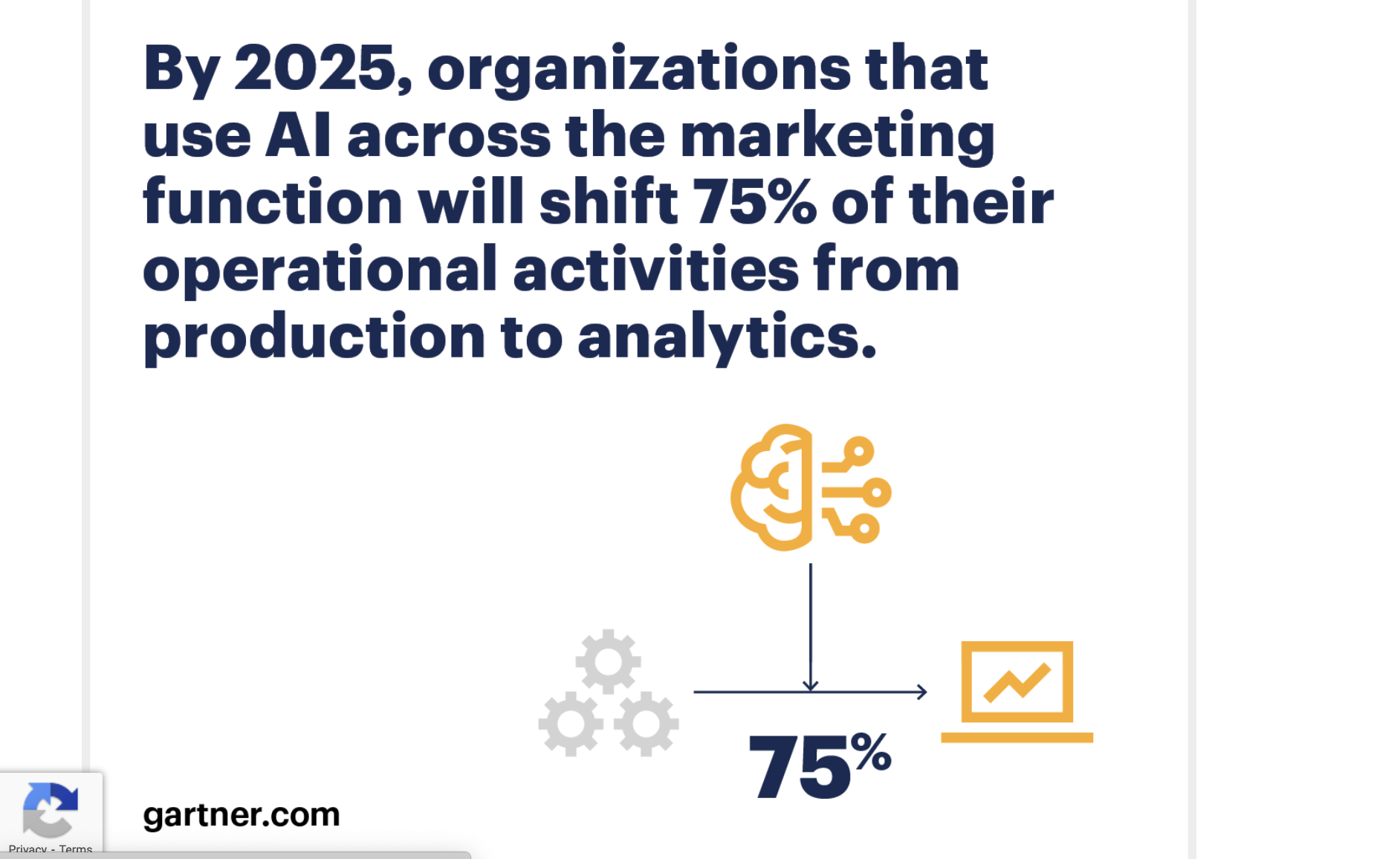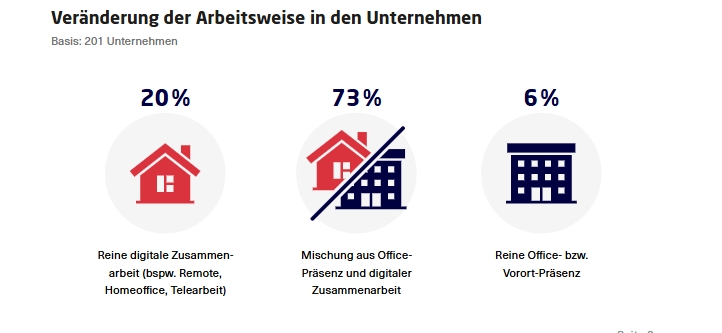What’s ahead for marketing in 2023
“Against a backdrop of unrelenting social and economic pressures, marketing leaders look toward a future where smarter marketing leads to deeper, more valuable connections between customers and brands,” says Emily Weiss, Principal Researcher in the Gartner Marketing practice.
No. 1: Marketing will implement operational AI for smarter, data-driven decisions
Gartner predicts that by 2025, organizations that use AI across the marketing function will shift 75% of their staff’s operations from production to more strategic activities. Using AI in marketing operations will reduce friction and eliminate redundancy, allowing marketers to shift their budgets and resources to activities that support a more dynamic marketing organization.
For example, marketers can leverage AI in the creative process to automate the capturing, processing and analyzing of real-world images and videos, improving image quality and developing digital twins.
AI will continue to refine marketing operations processes to drive more agile, data-based responses to the challenges ahead that have no signs of slowing down.
Learn more: What is a Digital Marketing Strategy?
No. 2: Marketing will create a content authenticity team to combat misinformation
Gartner predicts that by 2027, 80% of enterprise marketers will establish a dedicated content authenticity function to combat misinformation and fake material. The sheer volume of generative AI and user generated content (UGC), and the unpredictable nature of today’s digital content ecosystem poses a challenge. It’ll only get more complex as the use of AI and UGC grows. Proactive reputation management is critical, but scanning for inaccurate or defamatory content — at scale and in real-time — is increasingly difficult in a polarizing and high-velocity landscape.
The advancement in the scope and sophistication of misinformation creates a growing concern for CMOs. Just as AI and other technologies contribute to the content problem, they will also be part of the solution, especially when complemented with dedicated teams that listen, engage and escalate brand interests across the digital content ecosystem.
No. 3: Marketing will redeploy a portion of their media budget to product placement
Gartner predicts that by 2024, 70% of brands will redeploy at least 10% of their media budget to product placement in entertainment content. The reality is, consumers have advertisement fatigue and those with means that can afford to opt out of ads, do so. High-income consumers are more likely to say they “deliberately don’t pay attention” to ads and “try to multitask” if they’re stuck in front of one.
This game of cat-and-mouse has become very expensive, and brands pay top dollar to reach high-income consumers via digital advertising. But such impressions become less meaningful as this audience figures out new ways to tune them out. Marketers who cling to traditional digital ad formats will increasingly reach an audience composed largely of digital have-nots.
Instead, brands that shift toward product placement (such as streaming TV) and sponsored content (such as posts from brands, influencers and other people) will persevere. This is a form of marketing that consumers say they see everywhere, and largely approve of.
No. 4: Marketing will establish a loyalty program to retain high-priority customers
Gartner predicts that one in three businesses without a loyalty program today will establish one by 2027 to shore up first-party data collection and retain high-priority customers. Loyalty programs are an effective strategy to reward customers and collect critical data for personalization and enhancing customer experiences. At present, loyalty programs are most prevalent in the travel, hospitality and retail industries. However, there are opportunities in other verticals, such as banking and consumer packaged goods. Only 36% of 1,068 brands Gartner analyzed in 2022 had a loyalty program.
Effective loyalty content is often highly personalized and is best used to engage high-priority target audiences, improving retention and growth. By 2023, both B2B and B2C companies will increase their investments in loyalty programs as a percentage of their total marketing budget.
The competition for customers’ attention and first-party data will increase as more companies launch and revamp loyalty programs. CMOs running best-in-class loyalty programs will elevate their approach beyond transactional benefits and recognize personalization as a critical differentiator.
No. 5: Marketing will be accountable for ethical AI
Gartner predicts that by 2025, 70% of enterprise CMOs will identify accountability for ethical AI in marketing among their top concerns. Privacy-related restrictions on data collection, economic pressures, and AI breakthroughs are driving marketing teams to rely more heavily on AI and machine learning to optimize campaign performance and lower costs.
Simultaneously, regulators and advocacy groups are vocalizing concerns about manipulative and biased uses of AI through developments such as the AI Act in the EU or the AI Bill of Rights in the U.S. Several brands have come under fire over their use of advanced technology to influence consumers in creepy and inequitable ways.
“Marketing is uniquely positioned to understand the superior CX that AI affords as well as its trust and reputational risks,” says Weiss. “This puts the onus on marketers to address the ethical issues that AI is raising in their practices, and the impetus to do so must come from the top.”
In short:
- Every year, Gartner surveys CMOs in the CMO Spend and Strategy Survey.
- More than 60% of CMOs report that short-term execution pressures keep them focusing on long-term strategic goals.
- Amongst managing misinformation to ensure effective first-party data collection, we identify predictions marketing leaders must incorporate in their strategies to drive results and regain the confidence of business leaders.
This article is originally posted at What are the Top Marketing Trends for 2023? | Gartner contributed by Jordan Turner.



